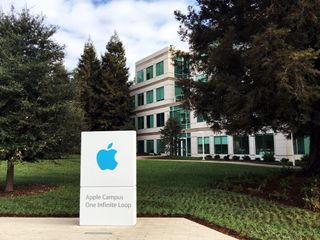Apple says no to GovOS: FBI's demands conflict with U.S. law and the Constitution
Apple has struck back at the FBI's Feb 19 court order

In a strong, clear language, Apple today has filed in opposition of a government order the company feels would weaken iPhone and iPad security and ultimately threaten public safety. Apple believes the company has already worked swiftly and tirelessly with law enforcement on both the San Bernardino and other cases, and that the surprise request using the All Writs Act is beyond the scope of both current laws and the public good.
In essence, Apple feels like they're being forced to create a "GovernmentOS" — or GovOS — that would bypass security mechanisms and make brute force attacks against the iOS passcode faster and easier. Moreover, that it would require Apple to set up what's effectively an FBI lab on Apple property, endlessly tasked to hack iPhones on the behalf of law enforcement.
Apple believes the demands are in conflict with existing laws and in violation of the First and Fifth Amendment of the United States Constitution.
It looks like the FBI demand came out of nowhere, with the use of the All Writs Act — a two hundred year old piece of legislation arguably never intended to be used in this manner — granted the same day it was requested, and without any notice to Apple.
Since iPhones contain not only personal messages and pictures but health data, financial information, and even location data on the owner and the owner's family and friends, creating a "GovOS" could leave hundreds of millions of customers vulnerable to espionage, hacking, identity theft, blackmail, and unlawful surveillance.
Further, that request is not only unprecedented, and not only conflicts with current law, but flies in the face of recent executive branch policy on these matters.
In that light, it sounds like the use of All Writs Act is as an end-run around the legislative branch and the legal process, and is counter to both precedent and Apple's rights under the First and Fifth Amendment: Specifically, it would force Apple to express the FBI administration's views on security and privacy rather than the company's own, and deprive the company of its liberties by compelling it to write what Tim Cook called "the software equivalent of cancer".
Master your iPhone in minutes
iMore offers spot-on advice and guidance from our team of experts, with decades of Apple device experience to lean on. Learn more with iMore!
Again, Apple is using strong language but also plain language. The company wants its position to be clear and accessible to everyone. That's good, because it's not only a complex issue, but one of the most important ones to be argued in our generation.

Rene Ritchie is one of the most respected Apple analysts in the business, reaching a combined audience of over 40 million readers a month. His YouTube channel, Vector, has over 90 thousand subscribers and 14 million views and his podcasts, including Debug, have been downloaded over 20 million times. He also regularly co-hosts MacBreak Weekly for the TWiT network and co-hosted CES Live! and Talk Mobile. Based in Montreal, Rene is a former director of product marketing, web developer, and graphic designer. He's authored several books and appeared on numerous television and radio segments to discuss Apple and the technology industry. When not working, he likes to cook, grapple, and spend time with his friends and family.
Most Popular





